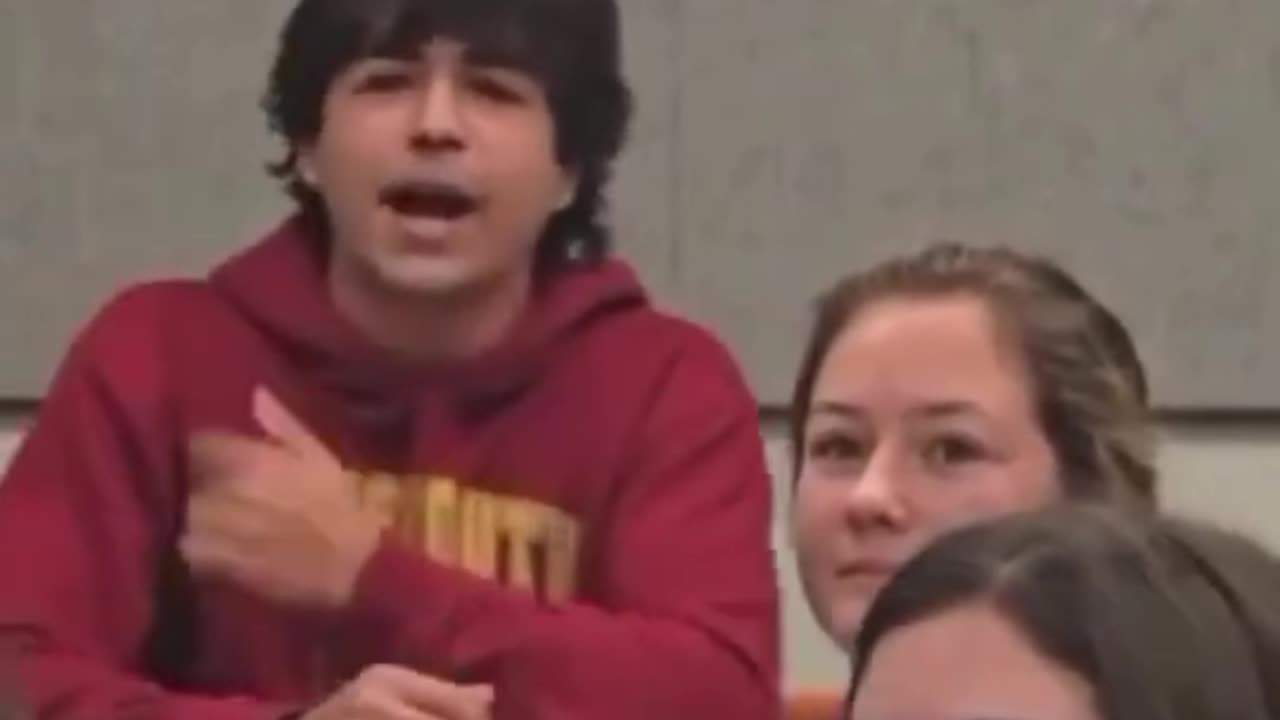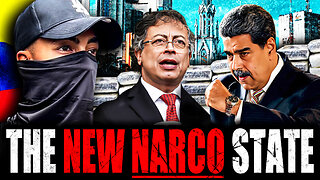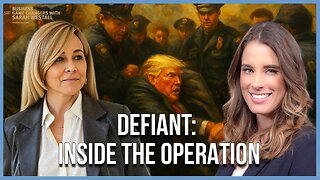Premium Only Content

Controversy in University Classroom After Student Justifies Political Assassinations
A tense incident at an American university has sparked alarm over the growing climate of ideological radicalization on campuses. During a classroom discussion, a student publicly defended political assassinations as a legitimate form of “revenge,” igniting outrage among classmates and reigniting debate over the limits of speech and violence in academic spaces.
The event took place during a political science class in which students were discussing polarization and contemporary social conflicts. According to witnesses, the conversation began normally but quickly escalated when one of the students claimed that, “in some cases,” violence or even the death of political leaders could be justified. The comment provoked an immediate reaction from the group, who confronted him for normalizing the idea of murder as a political tool.
Although the video of the moment lasts only a few minutes, it has had a strong impact on social media and national news outlets. The footage clearly shows that, far from being a joke or a misunderstanding, the student reaffirms his position — prompting many to question the type of discourse that is being legitimized within universities under the banner of “freedom of expression.”
This incident occurs amid a social context marked by rising political violence and the recent assassinations of public figures such as conservative activist Charlie Kirk and other leaders targeted for their ideological stances. These events have sparked fear among student communities and academic circles, warning that extreme polarization is crossing a dangerous line.
Various analysts and civic organizations have expressed concern over what they describe as a culture of hatred disguised as activism — one that fosters the dehumanization of political opponents. For some observers, the case reflects a deeper problem: the lack of education in democratic values, tolerance, and respectful debate within educational institutions.
Academic and religious voices have called on universities to reclaim their role as spaces for critical thinking rather than ideological militancy, emphasizing that democracy can only survive when there is respect for life and diversity of opinion. Across different forums, many have insisted that justifying political violence, from any side, poses a direct threat to the very principles upon which American society was founded.
The incident has also reignited debate over the role of social media and the spread of radical content among young people — often presented as “resistance” or “social justice,” but in practice, fueling resentment and division. National security experts warn that university campuses could become vulnerable spaces if the normalization of ideological extremism is not curbed.
Beyond this particular case, the episode reflects a growing and silent phenomenon: the loss of civility, empathy, and responsibility in political discourse. As disagreements turn into personal attacks and differing ideas are seen as threats, democratic coexistence becomes increasingly fragile.
Public figures have noted that such attitudes serve as a reminder of the urgent need to rebuild a climate of mutual respect and strong civic education. “The enemy is not the one who thinks differently,” one commentator stated. “The real danger arises when we stop recognizing the humanity in others.”
The case is now under review by university authorities, while social pressure grows for educational institutions to implement programs on ethics, inter-ideological dialogue, and extremism prevention.
Beyond the controversy, this incident delivers a stark warning: democracy cannot endure if its citizens — especially its youth — begin to view violence as an acceptable way to resolve political differences. The recent history of the United States, marked by activists and leaders killed for defending their beliefs, painfully reminds us that when intolerance replaces dialogue, the cost is always human.
-
 20:28
20:28
Nikko Ortiz
15 hours agoShooting Extremely Expensive Guns
12.4K2 -
 8:32
8:32
MattMorseTV
12 hours ago $5.02 earnedSchumer just TORCHED $90,000,000,000.
6.55K22 -
 51:25
51:25
The Connect: With Johnny Mitchell
1 day ago $44.42 earnedInside The REAL Narco State: The Colombian Drug Cartels DOMINATING The Global Cocaine Trade
82.1K34 -
 12:09
12:09
GritsGG
13 hours agoTook Down a Cheater on Rebirth To Achieve Victory!
1.22K -
 14:12
14:12
BlabberingCollector
16 hours agoHBO Show Update, Audible Full Cast Ensemble Updates, Wizarding World Quick Hits!
2.07K -
 LIVE
LIVE
Lofi Girl
2 years agoSynthwave Radio 🌌 - beats to chill/game to
129 watching -
 31:30
31:30
The Why Files
7 days agoCodex Gigas | The Devil's Bible and the Nazi Hole to Hell
164K74 -
 1:05:26
1:05:26
Man in America
16 hours ago“Poseidon” Doomsday Sub, Microplastics & The War on Testosterone w/ Kim Bright
89.4K6 -
 1:05:57
1:05:57
Sarah Westall
8 hours agoThe Story the DOJ, the FBI and the Media doesn’t want you to Know w/ Christina Bobb
37.7K10 -
 2:16:01
2:16:01
IsaiahLCarter
1 day ago $14.85 earnedGraham Linehan: A Mess of Courage and Conviction || APOSTATE RADIO 034
28.1K